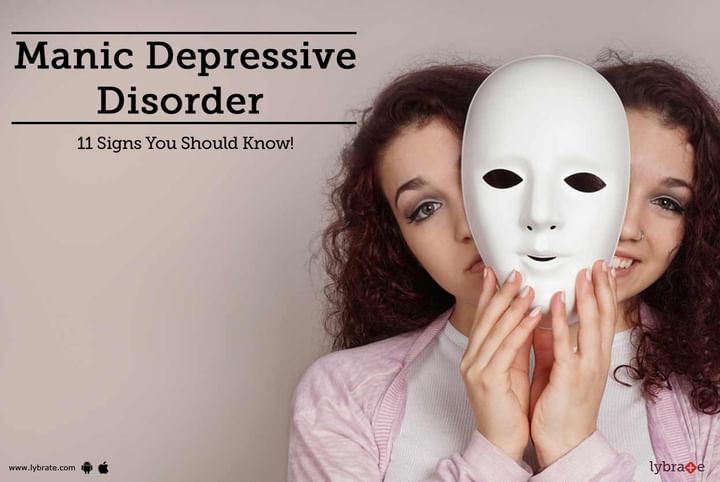Manic Depressive Disorder: 11 Signs You Should Know!
Manic depression, also known as bipolar disorder in recent days, is a major mood disorder characterized by hypomanic or manic episodes (deviation from one's usual mood along with abnormally high energy levels). Mania involves sleeplessness, along with psychosis, hallucinations, rage, grandiose delusions or paranoia. Mania or hypomania isn’t usually harmful to the patient and they might exhibit increased capacity for work and creativity. Depressive episodes however, can be debilitating and often life threatening as the person becomes self-destructive and suicidal in many instances.
The extent of mood swings can vary from extreme to very mild. They can occur progressively or suddenly and might last for few days to weeks. Patients affected by bipolar disorder may experience disturbances in thinking apart from depressive or manic episodes. Distortions of perception and impaired social functioning are also not uncommon. The cause of bipolar disorder is not fully understood like most mental health conditions and is often thought to be hereditary.
The extent of the seriousness of the bipolar symptoms varies from person to person. In some people, the disorder is not full blown and they don’t exhibit all the symptoms. Others who aren’t that lucky might have to be hospitalized multiple times in their lives as the symptoms creep into their work and personal life and make living a normal life a tough challenge.
Psychotic symptoms such as disorganized thinking, hallucinations and delusions might make a person do things that demand the urgency of hospitalization to keep them safe from their suicidal impulses. These symptoms might need to be urgently addressed by a psychiatrist and with the help of medications, the person might be able to regain control of their lives.
The symptoms of bipolar disorder are many and can be mainly categorized into two (sometimes overlapping) categories of mania or hypomania and depression:
Manic symptoms include:
- Grandiose delusions (delusion of grandeur)
- Racing thoughts which are often disconnected
- Sense of euphoria or false elation
- Irritability without cause
- Hampered social functioning
- Increased sexual inclination and risky sexual behavior
- Hyperactivity
- Increase in talking volume or speed
- Impaired judgment
- Reduced sleep requirements owing to extra energy levels
- Increased productivity and creativity
Depressive symptoms include:
- Abnormal eating patterns like over or under-eating to the extent of severe medical complications accompanied by drastic changes in weight
- Difficulty in concentration, making decisions and remembering
- Lack of energy or fatigue
- Contemplating about death for prolonged periods of time and suicidal behavior
- Oversleeping, insomnia or early awakening
- Persistent pessimism
- Irritability and restlessness
- Feeling of hopeless and negative attitude
Mood stabilizers, such as lithium are commonly employed to treat bipolar disorder. Anticonvulsants, benzodiazepines and anti psychotics can also be used in the treatment. Along with medications, support from family and friends is of the utmost importance as they need to help provide all the support required in making the person functional and healthy.
In case you have a concern or query you can always consult an expert & get answers to your questions!



+1.svg)
